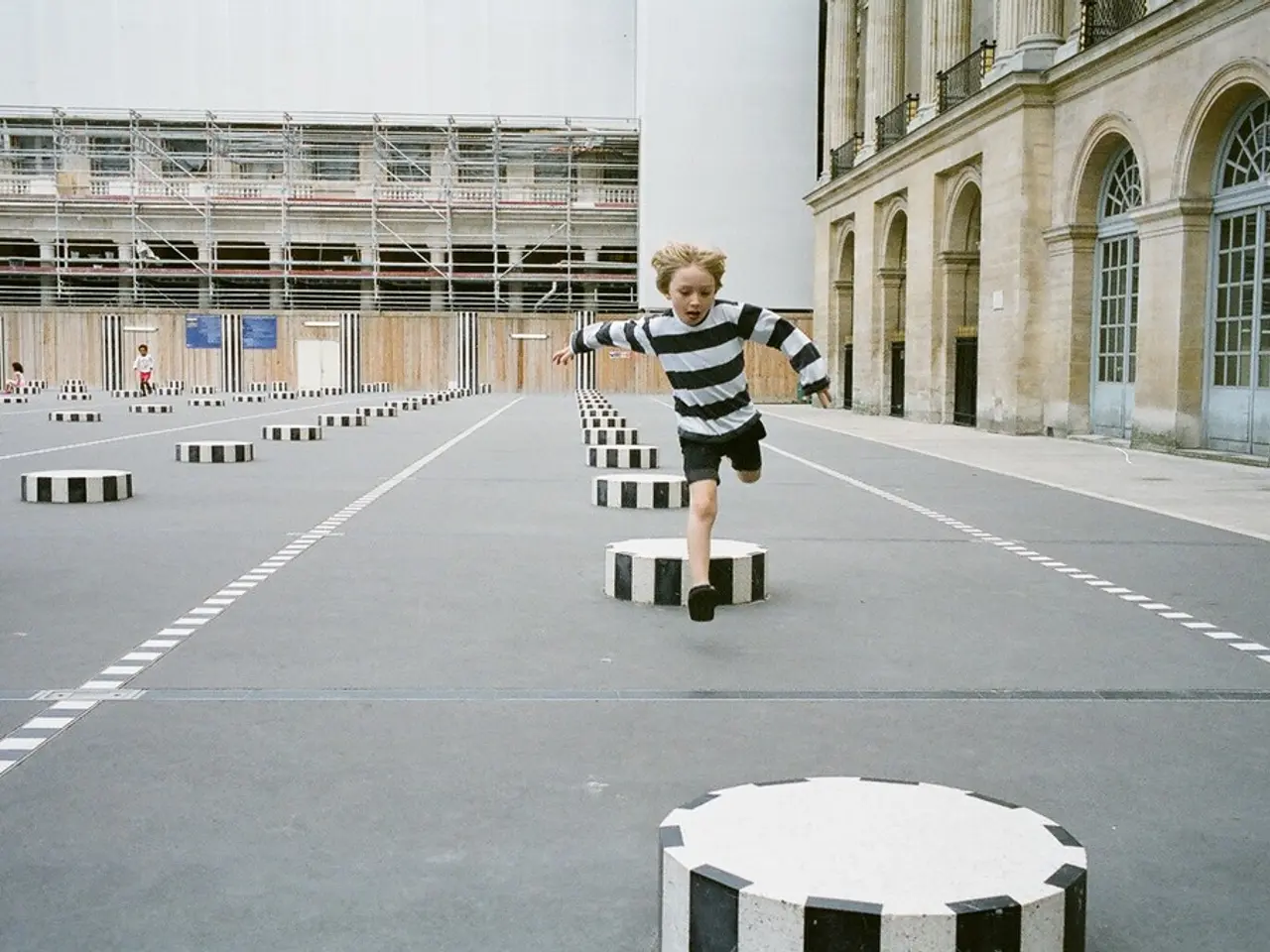Investigating Knowledge Gained from Mistakes at Children's Museum
In children's museums across the globe, failure is not seen as a flaw in learning, but rather a feature that fosters resilience, persistence, and cognitive development. These institutions, designed to be multisensory and hands-on, support learning across developmental stages and styles, encouraging children to learn through experimentation and failure.
The concept of productive failure, a significant contributor to cognitive development, is at the heart of this approach. This concept, popularised by educational researcher Manu Kapur, involves children attempting to solve complex problems without prior instruction. The initial failure, far from being discouraging, is productive because it activates prior knowledge, encourages exploration, and prepares the mind for subsequent formal instruction, leading to better conceptual understanding and retention.
Jean Piaget's theory of cognitive development, which emphasises active exploration and the resolution of cognitive conflicts, forms the basis of this approach. When children encounter problems they cannot immediately solve, this disequilibrium pushes them to adapt their thinking, a process Piaget called assimilation and accommodation, thereby constructing new knowledge structures and advancing through developmental stages.
Research from institutions like Stanford Graduate School of Education highlights that when students engage in tasks involving productive struggle or failure, it leads to several cognitive benefits. Sustained attention and active engagement ensure information is deeply processed and encoded into long-term memory. Overcoming challenging tasks boosts motivation, self-efficacy, and a growth mindset, crucial for ongoing cognitive development. Learners develop metacognitive skills by reflecting on their problem-solving approaches, supporting self-regulation and adaptive learning strategies.
Museo dei Bambini, a children's museum in Italy, exemplifies this approach. Its exhibits are designed with built-in opportunities for trial, error, and revision. The Cause & Effect space, for instance, allows children to build complex chain reactions, teaching them problem-solving and troubleshooting skills. In a children's museum setting, adults ask guiding questions to turn frustration into reflection and shift focus from winning to wondering. The Kinetic Jams exhibit helps children learn about systems and what happens when they don't work, while the Ball Ramps exhibit teaches children about force and motion through repeated failures.
In these low-stakes, high-choice environments, mistakes are welcomed as learning moments, not minimised or dismissed. Parents notice that their children become persistent when failure is framed as part of the fun. The Wind Tunnel exhibit helps children learn physics principles firsthand through feedback from failure, and the Harvard Center on the Developing Child reports that children build adaptive responses to stress through manageable challenges that include small failures and recoveries.
Children's museums are built on trust, valuing the child's ability to learn through experience and play as serious intellectual work. By embracing productive failure, these institutions are fostering not just content knowledge but also essential cognitive skills like problem-solving, flexibility, and self-regulation, creating a robust foundation for lifelong learning.
- The Museo dei Bambini, a children's museum in Italy, follows the global approach of children's museums, where failure is seen as a valuable learning opportunity rather than a flaw in education and self-development.
- The Kinetic Jams exhibit at Museo dei Bambini, for example, encourages personal growth by allowing children to learn about systems through repeated failures, fostering resilience and cognitive development.
- The educational philosophy of children's museums, such as Museo dei Bambini, emphasizes the importance of learning through trial, error, and experimentation, which aligns with research by Stanford Graduate School of Education that highlights the cognitive benefits of productive struggle or failure.




